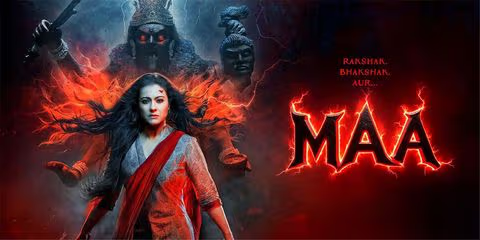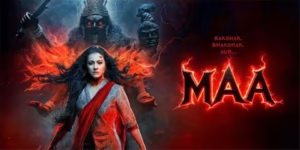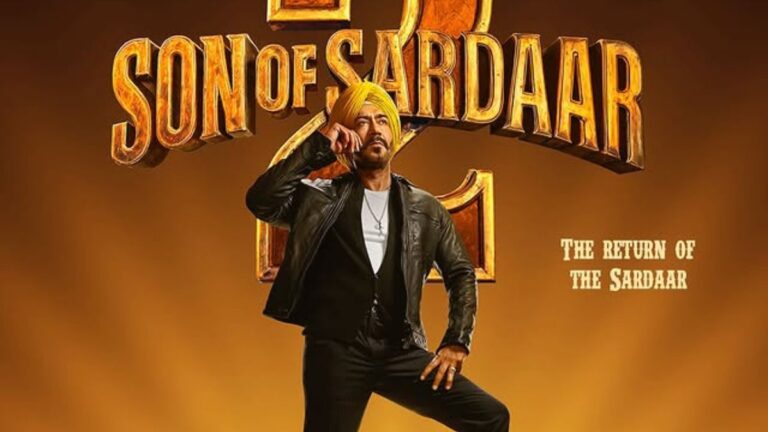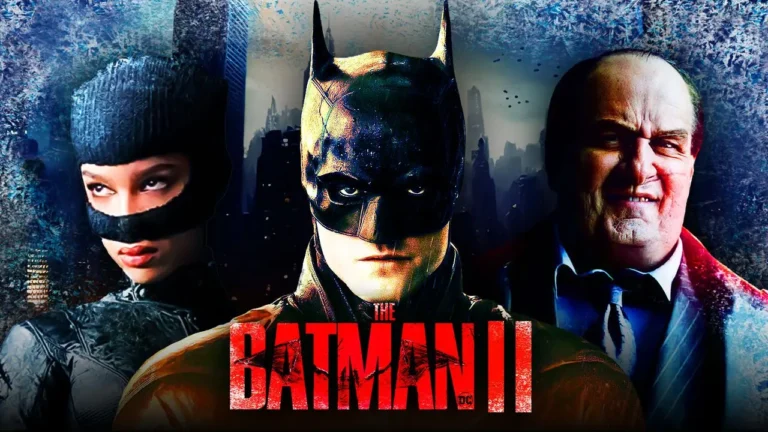
image source-google.com image credit - google
Maa, directed by Vishal Furia and produced under Ajay Devgn’s banner, is an ambitious foray into mythological horror. Set in the eerie, cursed village of Chandrapur, West Bengal, the film revolves around Ambika (Kajol), a grieving widow who returns with her daughter Shweta to finalize their ancestral home. But the village hides dark secrets—demons linked to the myth of Goddess Kali and Raktabīja threaten the newborn girls born there, and soon Shweta herself becomes a target.

Kajol’s Performance
Kajol carries the film on her shoulders. As Ambika transforms from bereaved wife to fierce protector, she delivers one of her most intense performances to date. Critics and audiences alike praise her for channeling raw emotion—“a commanding performance” balancing vulnerability with unyielding fury. Her emotional range shines brightest in the dramatic climax, where her depiction of a fierce maternal figure echoes the warrior-Kali archetype.
Supporting Cast & Characters
Kherin Sharma, as Shweta, offers a believable and affecting portrayal of innocence thrust into terror. Ronit Roy delivers a brooding, enigmatic performance as village head Joydev, adding tension through his silent menace. Indraneil Sengupta’s role, though brief, provides emotional grounding in the first act as Ambika’s husband.
Plot, Mythology & Atmosphere
Maa intertwines the mythology of Kali and the demon Raktabīja with horror elements. The narrative builds a creepy tapestry of folklore—abducted girls, a cursed tree, and an ancestral mansion loaded with secrets. Visually, the film immerses viewers in atmospheric chills, aided by haunting cinematography and careful sound design.
However, the storyline suffers from predictability. The script heavily relies on familiar tropes—a missing child, jump scares, clichéd dream sequences—and often gives away suspect roles too early. The pacing struggles as well; the backstory unfolds during the protracted first half, slowing down momentum.
Horror Execution & VFX
Vishal Furia’s horror vision is apparent in several chilling moments and atmospheric beats. But many felt it falls short of delivering consistent scares—jump scares feel mechanical, and the demon’s CGI lacks menace, sometimes even appearing dated or cartoonish. The background score often resorts to horror clichés rather than creating nuanced suspense.
Emotional Depth & Themes
The core theme—maternal love meeting divine horror—offers emotional resonance. Yet, this emotion is at times undermined by melodrama, leaving some character relationships underdeveloped. The mother-daughter bond between Kajol and Shweta, though moving, rarely reaches its full potential. Still, the film’s mythological grounding sets it apart from typical Bollywood horror flicks.
Final Verdict
Maa is a commendable and bold experiment in mainstream Bollywood horror, blending mythology with emotional drama. Kajol’s powerhouse performance anchors the film, and the unique mythological premise adds freshness to the genre. However, predictable writing, uneven pacing, underwhelming VFX, and underdeveloped emotional arcs prevent it from reaching its full potential.



